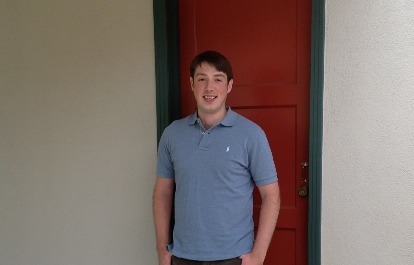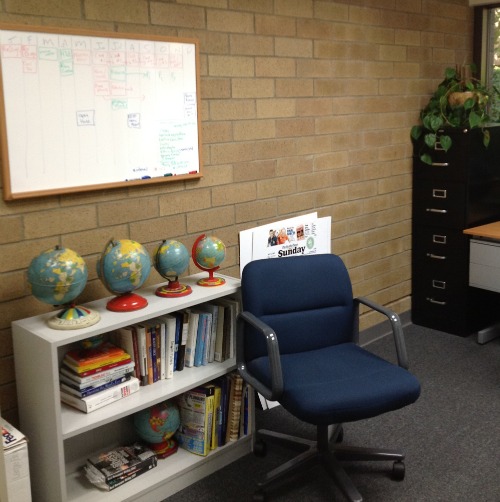Elusive Business Formula
News was also encouraging on the financial front. The organization’s balance sheet looked relatively healthy. Because IW didn’t pay salaries until June 2010, it operated in the black from the start. Income exceeded expenses in 2009 and 2010. On the negative side, however, earnings from reporting were disappointingly low. In 2010, they amounted to less than $14,000 on income of $235,000. For example, reporting and production costs on the cruise ship pollution story had exceeded earnings. Recalls Hibbard: ”That was the single best distribution of a story, but it still cost more to actually do it.” [20] Fortunately, IW continued to attract foundation support. In late 2010, it won a $60,000 business innovation grant from the Seattle-based Brainerd Foundation.
But it still had no business formula that would assure its continued existence. Its business practices were ad hoc and often improvised. In early 2011, Hibbard began a fellowship for media executives at the Columbia University Graduate School of Journalism. [21] The program required participants to bring actual business projects for examination. Hibbard recalls that ”my project was essentially to provide financial stability for InvestigateWest .” She hoped her work would bring more clarity to what IW was doing.
But Hibbard found herself too busy managing IW to take full advantage. In such a small organization, there was no one to take up the slack. So while the program provided coaching from Columbia faculty plus media and business consultants, Hibbard recalls,” I didn’t feel like I had the resources or time to develop all the kinds of financial and other information I would have liked to.” At one point, instead of attending a lecture on negotiation, “I was on the phone negotiating a story on federal immigrant detention centers with the editors at the Tacoma News-Tribune ,” she recalls.
In yet another experiment, IW in summer 2011tried free distribution; they hoped it would at least bring public recognition. They had been unable to sell an intern’s story on a Seattle nonprofit’s efforts to conserve and harvest the city’s fruit trees and donate much of the produce to local food banks. So, recalls Smith, “we thought, OK, let’s just reduce the price to nothing and see if a wide variety of people will run it and, in fact, they didn’t. So we were able to check that experiment off.”
Existential crisis. Then in August 2011, Hibbard dealt the organization a blow: she announced her resignation. She felt the timing was acceptable: the organization had over $50,000 in the bank and what she considered a healthy editorial output. Hibbard would stay through November to help with the transition. “I felt like I needed to do something different for myself, and I wanted to do that at a time when InvestigateWest was doing well,” says Hibbard. “I just needed to recharge and take some time off.”
Hibbard’s decision stirred the board, until then fairly hands-off, to action. A single departure could still bring the enterprise to a halt. At the same time, it gave IW an opportunity to evaluate progress and plan for future needs. A board meeting was scheduled for December. Members decided to make it a two-day gathering to hash out a succession plan and address the need for a coherent business strategy.

Jason Alcorn
InvestigateWest Board Chairman Reich remembered Jason Alcorn, who had moved to Los Angeles from New York City that summer. A Harvard social studies graduate with experience in Internet marketing for nonprofits, Alcorn had just completed a dual masters degree program in journalism and international affairs at Columbia. He had started to establish himself as a freelance journalist. Reich knew Alcorn from the latter’s stint in online marketing, and sounded him out about joining InvestigateWest —primarily on the business side. Recalls Alcorn:
I expected, not having had a journalism background, that it would take six months to a year or two to get my feet under me as a professional journalist. I jumped at the opportunity to learn from Robert [McClure] and Carol [Smith], who are both phenomenal reporters, and to try new things. [22]
In October, IW at Reich’s suggestion brought on Alcorn as a contractor to help keep the operation running and eventually to work on a revised business plan. The contract would also serve as an audition; McClure and Smith wanted to work with Alcorn before agreeing to bring him on fulltime. He brought training in digital journalism, and an ability to package reporting and ancillary materials for multiple platforms. He also had the business experience to view journalism as a set of skills, services and expertise, rather than as the creation of a single end product.

Office space Amid the uncertainty came a practical and psychological boost. In early November 2011, InvestigateWest moved into offices in KCTS’s Seattle headquarters. An in-kind deal negotiated as part of a yearlong contract for several investigative projects, the move signaled at least a degree of stability. The space, which included a large common area, was soon decorated with souvenir and classroom globes, a reminder of the Post-Intelligencer’s iconic 30-foot high neon globe, which had graced the paper’s headquarters since the 1940s. [23]
[20] IW had worked through Spot.us, a clearinghouse and fundraising site for grassroots reporting. To obtain funding using Spot.us, a reporter proposed a story and the budget required to produce it. IW met its fundraising goal, but that proved insufficient to cover expenses. The story was distributed via a Creative Commons copyright agreement, which allowed for free noncommercial redistribution and modification.
[21] The Punch Sulzberger Executive Leadership Program involved some travel to New York, but was mostly conducted long distance.
[22] Author’s interview with Jason Alcorn on August 1, 2012 in Los Angeles. All further quotes from Alcorn, unless otherwise attributed, are from this interview.
[23] In 2012, the globe was designated a city landmark and donated to the Seattle Museum of History and Industry.